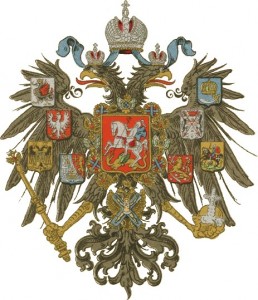USCIRF Condemns Enactment of Anti-Terrorism Laws in RUSSIA
 WASHINGTON, D.C. – Russian President Vladimir Putin on July 7 signed into law a package of anti-terrorism measures the Russian State Duma passed in late June.
WASHINGTON, D.C. – Russian President Vladimir Putin on July 7 signed into law a package of anti-terrorism measures the Russian State Duma passed in late June.
The U.S. Commission on International Religious Freedom (USCIRF) strongly condemns these measures. Under the guise of confronting terrorism, they would grant authorities sweeping powers to curtail civil liberties, including setting broad restrictions on religious practices that would make it very difficult for religious groups to operate. On June 23, President Putin signed into law yet another problematic measure: It authorizes the police to arrest people suspected of violating “generally accepted norms of social behavior,” thereby giving authorities another weapon to use against disfavored groups, including religious organizations.
“These deeply flawed anti-terrorism measures will buttress the Russian government’s war against human rights and religious freedom,” said USCIRF Chair Thomas J. Reese, S.J. “They will make it easier for Russian authorities to repress religious communities, stifle peaceful dissent, and detain and imprison people. Neither these measures nor the currently existing anti-extremism law meet international human rights and religious freedom standards.”
The anti-terrorism measures would, among other provisions, amend the 1997 Russian religion law by redefining “missionary activities” as religious practices that take place outside of state-sanctioned sites. The new law thus would ban preaching, praying, proselytizing, and disseminating religious materials outside of these officially-designated sites, and authorize fines of up to $15,000 for these activities conducted in private residences or distributed through mass print, broadcast or online media. Foreign missionaries also must prove they were invited by state-registered religious groups and must operate only in regions where their sponsoring organizations are registered; those found in violation face deportation and major fines.
The Russian government uses its current anti-extremism law to target religious communities because the legal definition of extremism does not require the threat or use of violence. “Extremism” charges can include the peaceful promotion of “the superiority of one’s own religion,” and have resulted in religious texts being banned and members of non-violent Muslims groups and Jehovah’s Witnesses imprisoned. The proposed anti-terrorism measures would increase prison terms under the current extremism law.
USCIRF placed Russia on its Tier 2 list in its 2016 Annual Report. In Tier 2 countries, the violations the government engages in or tolerates are serious and characterized by at least one of the elements of IRFA’s “systematic, ongoing, and egregious” standard. For more information, please refer to the Russia chapter in USCIRF’s 2016 Report (in English and in Russian).








Comments